“Tunisia, A Startup Democracy” @Columbia University
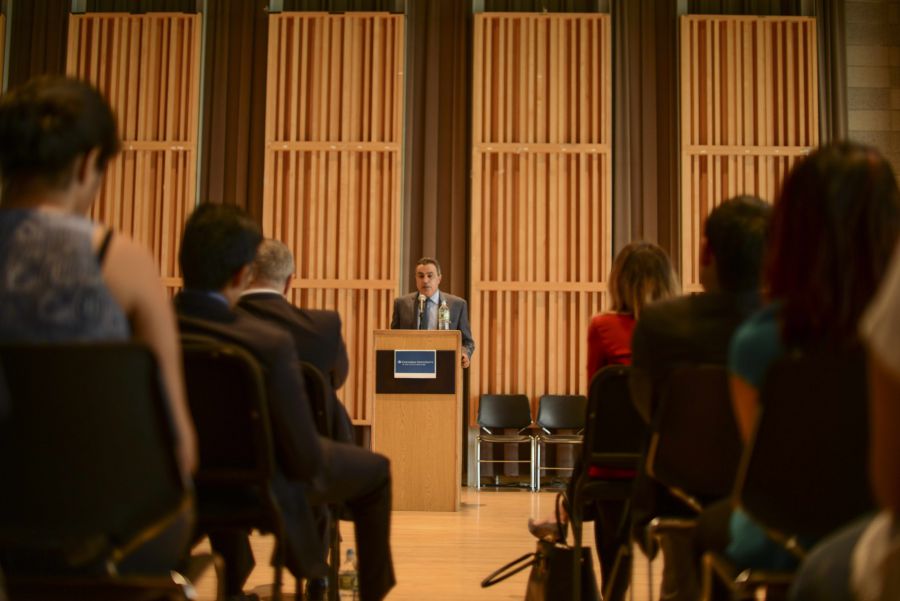
Photo credit to Yasmine Akki, a member of Turath, Columbia University
Turath, a nonpartisan undergraduate student association that serves to promote Arab culture at Columbia University, invited Mehdi Jomaa, former Prime Minister of Tunisia, to deliver a talk to the broad Columbia community entitled “Tunisia: A Startup Democracy 2.0”.
The talk took place in the afternoon of September 27th in a large conference room on the 5th floor of the iconic Alfred Lerner Hall at Columbia University. Around 80 students, faculty members and staff attended the event to hear about Tunisia’s democratic transition over the past 5 years. Several New York-based Tunisians including TAYP members equally joined the event.
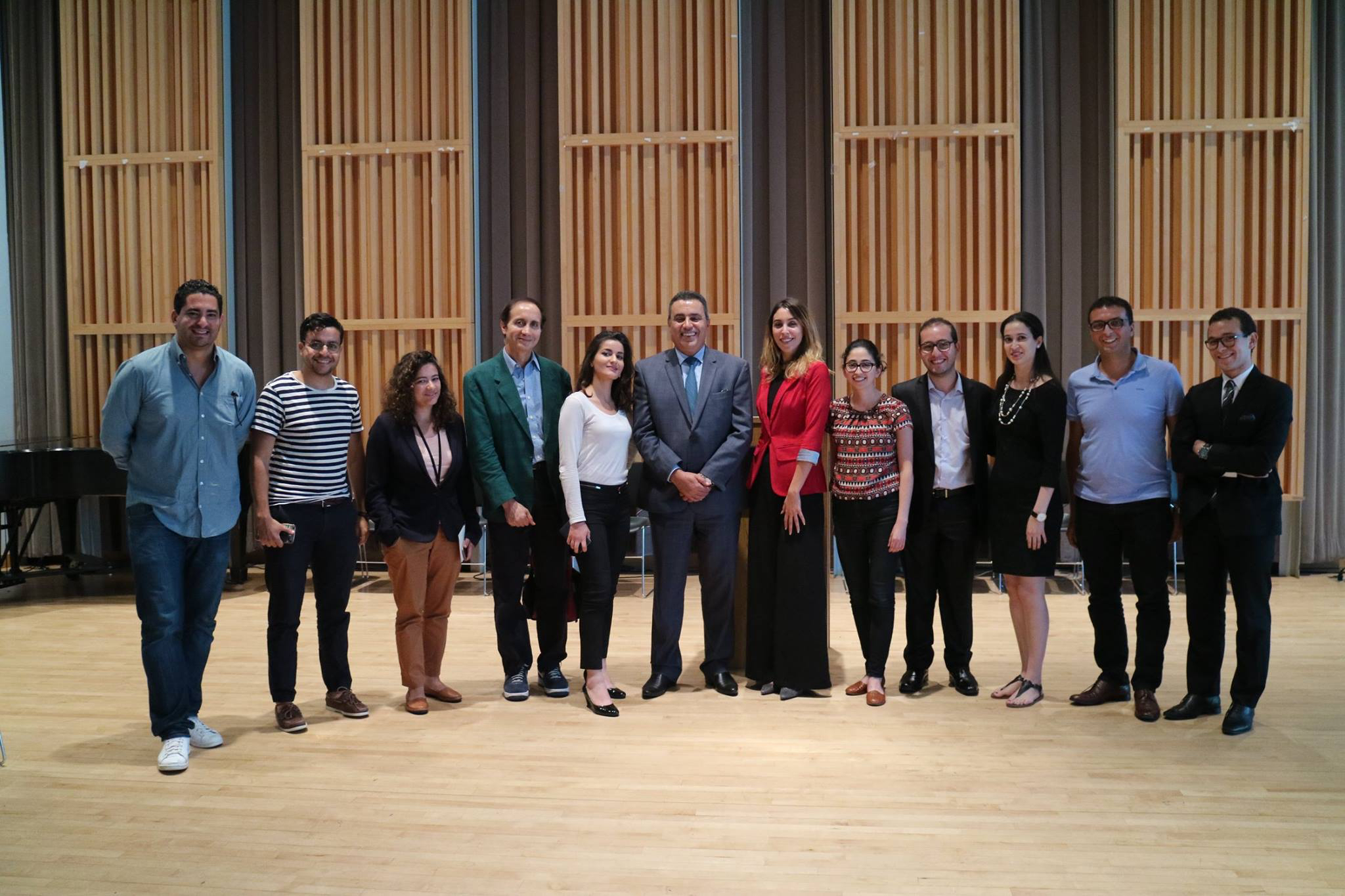
New York-based Tunisians including TAYP members joined the event. From left to right: Dali Belkhiria, Khaled Boughanmi, Sarah Fekih, Mounir Khaddar, Ghada Jerfel, Mahdi Jomaa, Fatma Ghedira, Amal Abid, Rostom Bouazizi, Hajer Tlijani Hatem Berrima, and Ahmed Mrad. Photo credit to Rostom Bouazizi, TAYP member and author contributor.
Mehdi Jomaa’s talk was a follow up to his previous 2014 talk “Tunisia: A Startup Democracy” at Columbia University, which he delivered during the World Leaders Forum when he was the head of Tunisia’s government. His talk was three fold, past, present and future:
He begun by reminding the audience of the reasons that led to the 2011 revolution and invoked the frustration of young Tunisians who could not find a job after graduating from college, the disparity between the regions in terms of social and economic development and the lack of freedom of expression.
He also mentioned the multiple crises that Tunisians faced throughout the democratic transition, including the political assassination of major political figures, and now martyrs, Chokri Belaid and Mohamed Brahmi. He stressed, however, the fact that the strong cohesion of the Tunisian society and the consensus approach used by the quartet during the national dialogue allowed for a smooth power transfer to the government that he had led, which successfully organized the first free and fair democratic regular legislative and presidential elections in the country’s history.
He then went on to describe the current situation, focusing mainly on the social tension in Tunisia and the international terrorist threat. He pointed out that within this context, many people are now calling for limiting individual freedoms to ensure security. He argued that, contrary to that belief, security and democracy complement each other. The former PM illustrated his point by referring to the security approach he used as Head of Government. He said that instead of limiting freedoms, his team strengthened the hand of the legal apparatus and thus faced extremism and terrorism through “the force of law and not the law of force”.
He then summed up his approach of “horizontal leadership” in four words: shared responsibility, common action, shared values and accountability. He stressed the idea that only through democracy could such an approach be effective since democracy generates active citizenship. To explain this, he gave the example of the Battle of Ben Guerdane during which heavily armed Islamic State forces attempted to seize the town and create an Emirate on March 7th 2016. The terrorists were certain that they would succeed, thinking that the dire economic circumstances in which the people of Ben Guerdane live will pit them against their own government and bring them to the side of the IS attackers. Instead, the “active citizens” of Ben Guerdane joined the armed forces in combatting the terrorists. They were unarmed but their patriotism gave them the courage to fight the terrorists with nothing but rocks and sticks. The former PM ended his talk by saying: “You can never combat people who are willing to fight guns with sticks”
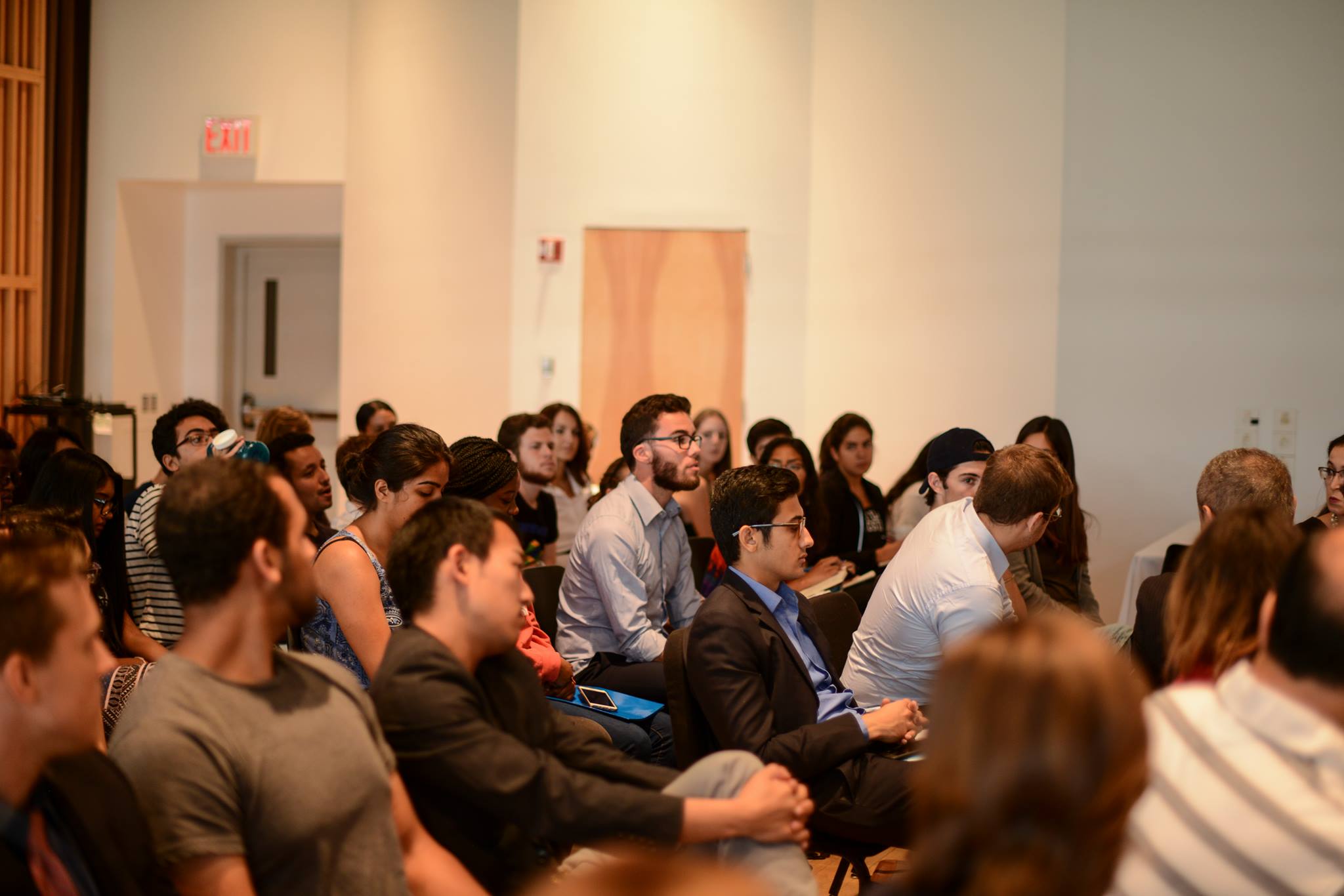
Questions from the audience. Photo credit to Yasmine Akki, a member of Turath, Columbia University
Mehdi Jomaa then responded to students’ questions:
(1) One student asked about how Tunisia could succeed despite the polarization between Islamists and seculars to which Jomaa replied that there was actually no polarization but rather a culture of consensus between the various parties in Tunisia.
(2) Another student questioned the idea that democracies are stronger in facing terrorism by giving the example of Belgium. The former Head of Government responded by clarifying the distinction between strong democracies, fragile democracies, strong autocracies and weak autocracies. He stated that, statistically speaking, fragile democracies (such as Tunisia) are the most vulnerable ones to terrorism, adding that, while large in scale, the France and Belgium attacks were isolated cases. He stressed, however, that as fragile democracies make their way to become strong ones, the ability of their governments to face terrorism becomes much more considerable.
This talk was an opportunity to remind an international community such as Columbia’s that Tunisia is making steady progress toward affirming the democratic social values which will eventually lead to improved security and economic prosperity. Such a radical transformation of society, however, is never fast. We, as Tunisians, should work hard to set the grounds for a prosperous nation for future generations and remain vigilant to avoid deviating from our democratic values.
We thank Yasmine Akki, a member of Turath for sharing a set of photos taken during the event.
related news
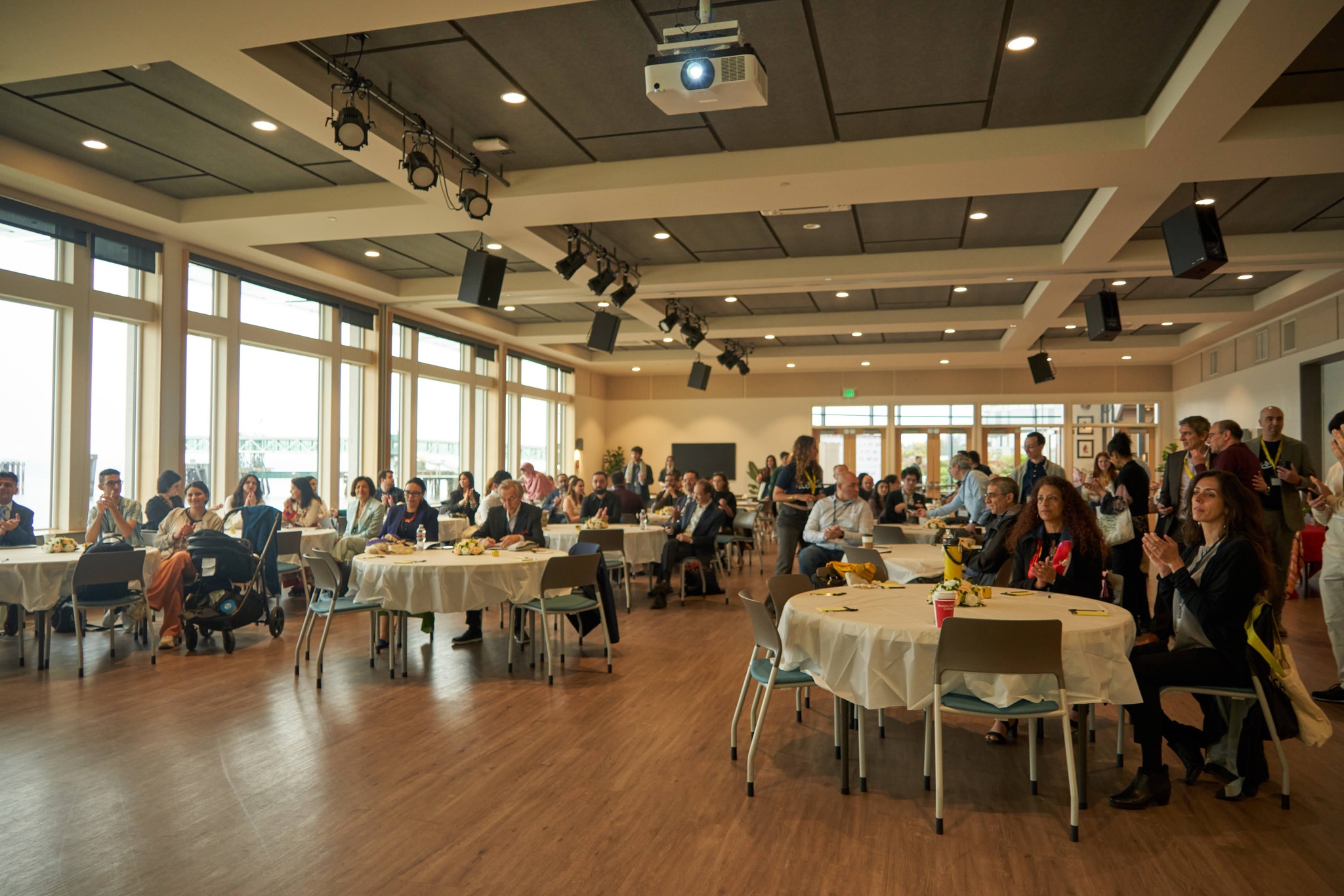
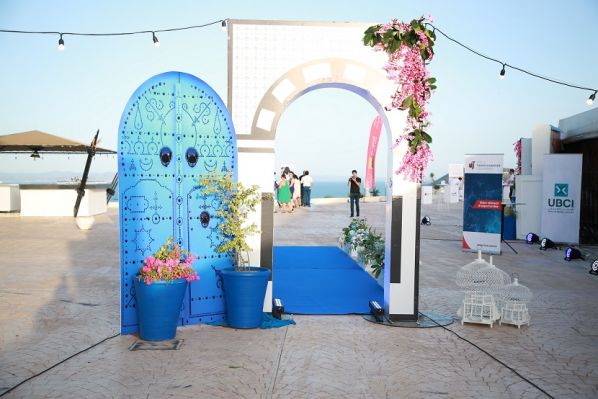
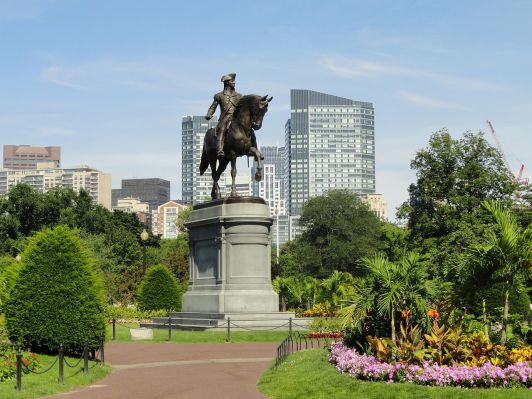

About the author
Rostom Bouazizi